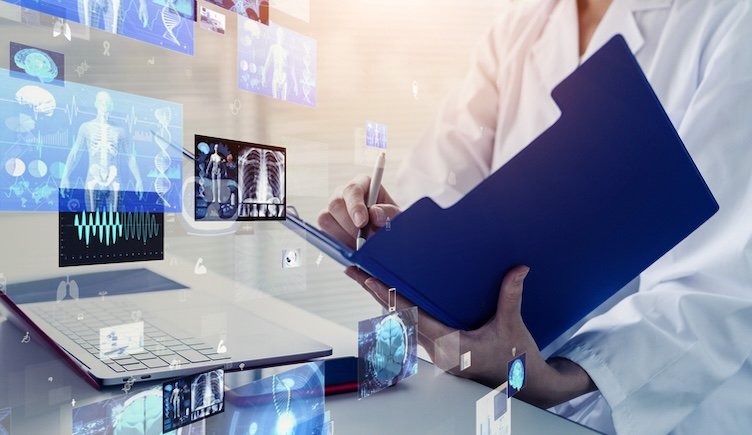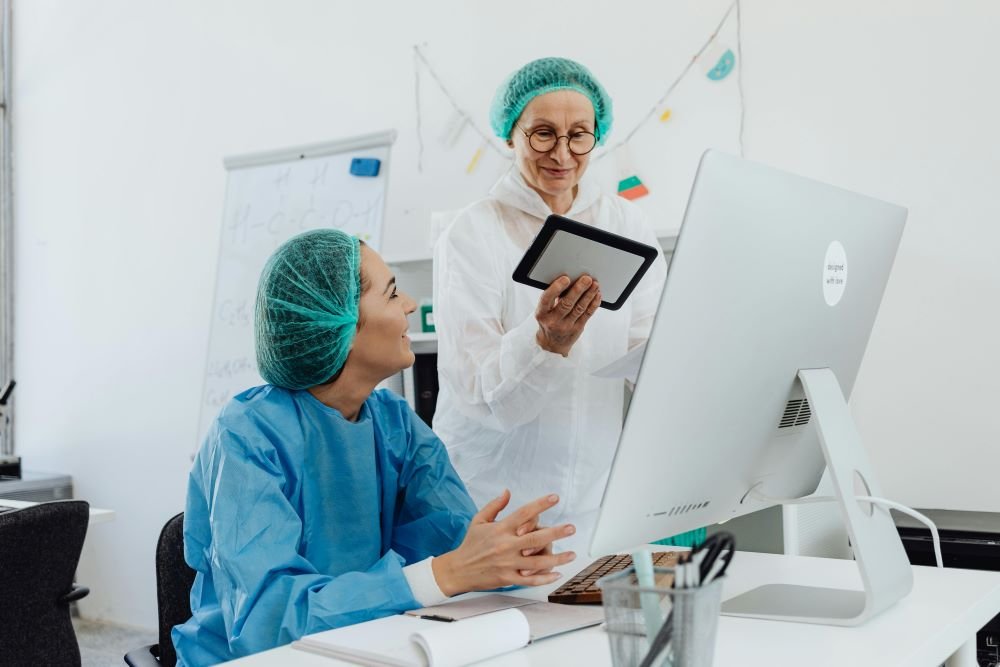Artificial Intelligence (AI) has made significant strides in the medical field, impacting everything from diagnostics to patient care. Recently, the emergence of AI doctors is shaping how future medical professionals are trained, especially in the area of natural remedies. Medical students are now working alongside AI systems to learn about traditional treatments, blending modern medicine with age-old practices. This new direction could change the landscape of healthcare as we know it, combining cutting-edge technology with centuries-old wisdom.
AI as the New Teaching Assistant
One of the most exciting developments in medical education is the integration of AI as a teaching tool. AI systems, often referred to as “virtual doctors” or “digital assistants,” help students explore complex medical conditions and treatment methods. These systems are designed to analyze vast amounts of data, from scientific research to patient histories, and provide insights that guide students’ learning.
But what’s truly groundbreaking is the way AI is being used to introduce students to natural remedies, such as herbal treatments, acupuncture, and other alternative therapies. While these remedies have been used for centuries, they were often seen as secondary to conventional medical treatments. Now, however, AI is helping students bridge the gap between the two.

Blending Traditional Wisdom with Modern Science
Natural remedies have long been a part of many cultures around the world. From the ancient Ayurvedic practices of India to the traditional Chinese medicine methods, these treatments have provided relief to countless individuals. However, they were often seen as complementary rather than primary forms of treatment.

AI is challenging this outdated perspective. By using data-driven insights, AI doctors can show medical students the efficacy of natural remedies in treating specific conditions. For instance, a student studying the effects of stress on the human body might explore how herbal teas or acupuncture can help reduce symptoms. Instead of dismissing these approaches, AI provides a platform for students to research their real-world applications.
The Role of AI in Medical Research
Medical students are not just being trained in traditional and modern medicine; they are also encouraged to dive into research on natural remedies. Through AI, students can access an enormous database of clinical trials, studies, and medical journals to examine how natural remedies have been used effectively in the past. This research can help students gain a deeper understanding of how these treatments interact with the body and why they may offer viable alternatives to pharmaceutical drugs.
What makes AI so powerful is its ability to sift through and analyze vast amounts of research at a speed no human could match. This means students can quickly identify patterns and draw conclusions based on a wealth of information, which can lead to more innovative approaches in both medical care and patient outcomes.
Encouraging a Holistic Approach to Medicine
One of the most exciting implications of AI in medical education is the way it encourages students to think holistically about health. Instead of focusing solely on the symptoms and treating them with drugs, AI encourages students to consider all aspects of a patient’s well-being, including physical, emotional, and mental health. By learning about natural remedies, students gain a more well-rounded perspective on healing and treatment.
Holistic health care is not new, but AI’s ability to merge modern technology with traditional practices opens new doors for more comprehensive patient care. Students who understand both natural remedies and traditional medicine are better equipped to make informed decisions about patient care, knowing when to apply each approach for optimal results.
Real-World Applications for AI in Medicine

AI’s role in the integration of natural remedies isn’t just theoretical; it’s already making a real impact in medical practices. For example, AI systems are being used in hospitals and clinics to help doctors determine the best course of treatment for patients, including the use of natural therapies. By analyzing patient data, AI can suggest complementary treatments that are both effective and safe, helping doctors create customized treatment plans that consider all available options.
This approach is especially important in cases where patients may have chronic conditions or require long-term care. Natural remedies can provide relief for symptoms without the side effects often associated with pharmaceuticals. With AI’s ability to predict and recommend these treatments, doctors can improve their patients’ overall quality of life.
Future of AI in Medicine
Looking ahead, AI is expected to continue playing a central role in reshaping medical education and patient care. As AI systems become more sophisticated, they will increasingly contribute to research and treatment strategies for both traditional and natural remedies. Medical students will be better prepared to navigate a complex landscape where technology, innovation, and ancient wisdom coexist.
The ultimate goal is to create a new generation of doctors who are not only experts in modern medicine but also well-versed in the benefits of natural healing methods. This new wave of healthcare professionals will be equipped with the knowledge and tools to provide patients with the most comprehensive and personalized care possible.
Conclusion
The introduction of AI doctors into medical education is transforming how students learn and approach medicine. By bridging the gap between traditional healing practices and modern science, AI is helping shape the next generation of healthcare professionals. The integration of natural remedies into their training allows for a more holistic approach to healing, ensuring that future doctors are not only well-versed in pharmaceutical treatments but also knowledgeable about alternative therapies. As AI continues to evolve, it promises to further revolutionize the way medicine is practiced, making healthcare more personalized, effective, and inclusive.
Also read: No Tuition Fee Hike in Some Dubai Private Schools: What It Means for Families













